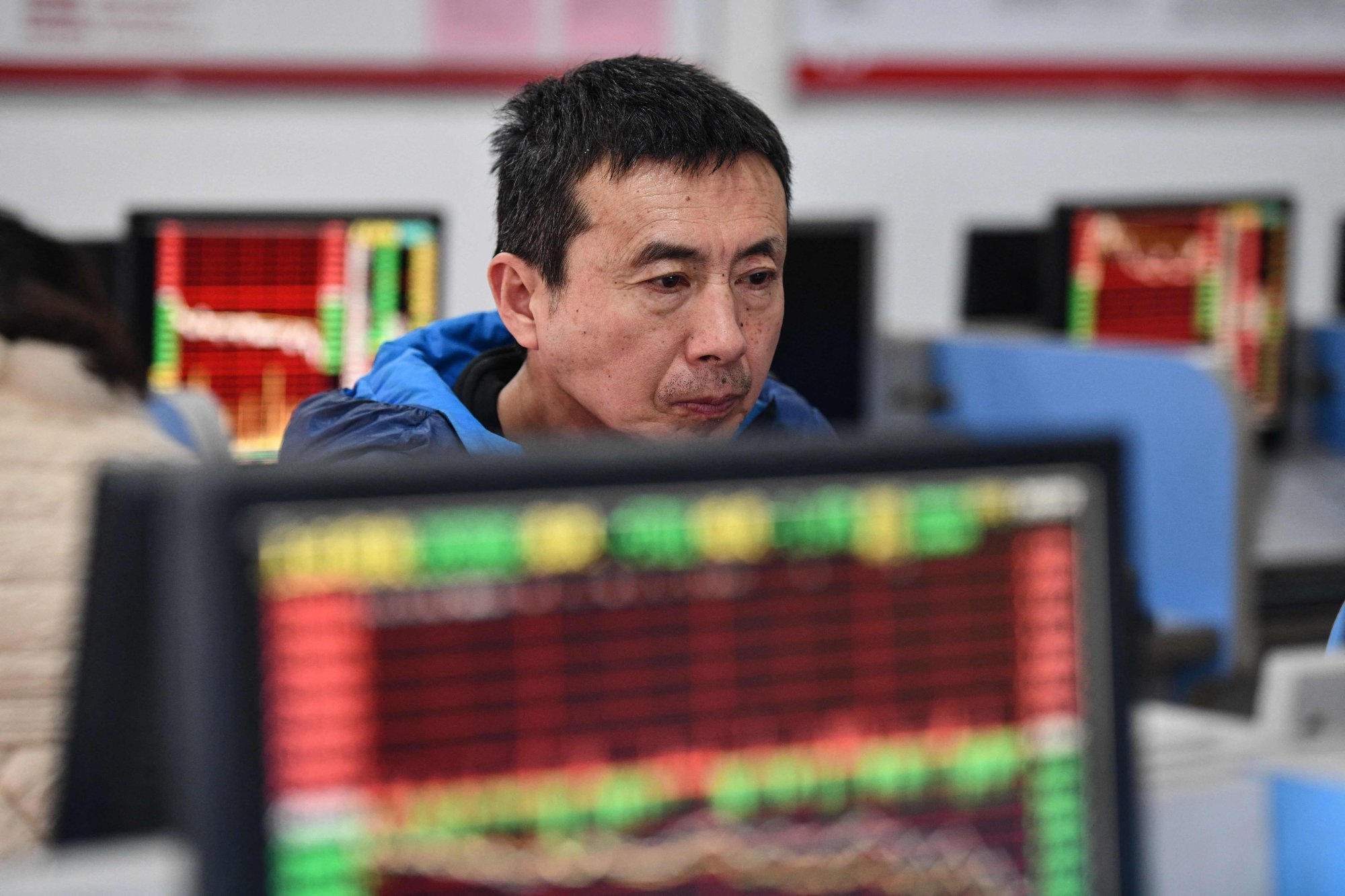
China’s high-dividend stocks in demand as falling bond yields, rate-cut hopes add to their lure
- The CSI Dividend Index of the 100 companies with the highest dividend yields on the mainland’s exchanges is at a level not seen since September 2021
- The dividend index has been an outlier in China’s onshore stock market, beating the main CSI 300 benchmark every year since 2021, when the market downturn began
A record-breaking rally in Chinese government bonds has compressed their yields to well below those of dividend-paying stocks whose prices have been crimped by a three-year market slump, prompting haven-seeking investors to chase cash-rich companies’ shares amid uncertainty in the world’s second largest economy.
The CSI Dividend Index of the 100 companies with the highest dividend yields on the mainland’s exchanges has risen 14 per cent this year, taking it to a level not seen since September 2021. Another CSI index tracking a group of similar stocks listed on the Shanghai bourse has fared even better, with a 16 per cent gain in the same period. Both have beaten the CSI 300 Index, the benchmark of China’s onshore yuan-denominated stocks, which has risen 6.1 per cent year-to-date.

“We are still in a fragile macro-environment,” said Wang Yi, an analyst at Great Wall Securities. “Therefore, companies’ willingness to share profits and stable dividend flows have become the anchor for investors who chase visible investment returns.”
Financial companies have the biggest representation in the dividend index, with 23.5 per cent of the weighting, according to the gauge’s fact sheet. Energy and raw-material producers were ranked second and third, contributing 19.1 per cent and 17.2 per cent, respectively.
State-backed China Citic Bank has the biggest weighting on the benchmark, with a 3.1 per cent representation, followed by coal producer China Shenhua Energy and peer Shaanxi Coal Industry, with the three companies’ dividend yields exceeding 5 per cent each.
The dividend index has been an outlier in China’s onshore stock market, beating the main CSI 300 benchmark every year since 2021, when the market downturn commenced. The gauge rose 0.9 per cent in 2023 versus an 11 per cent decline in the CSI 300, and fell 5.5 per cent in 2022 when the main benchmark tumbled 22 per cent.
Qu Xiongfeng, an analyst at Jianghai Securities said: “Expectations about an interest-rate cut will boost the appeal of high-dividend stocks. The trade is still alive!”

